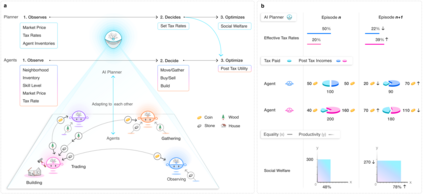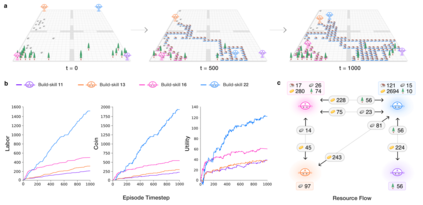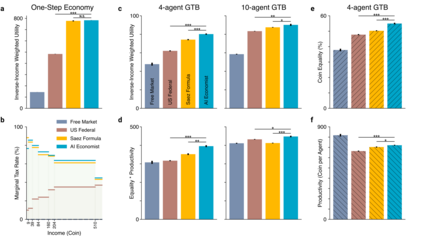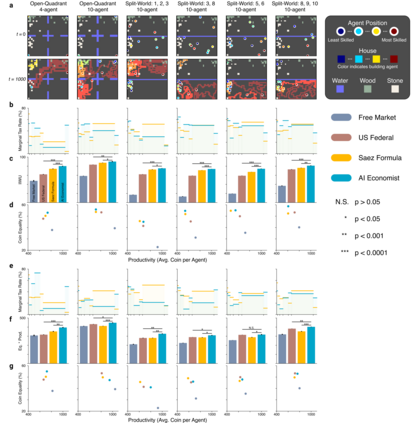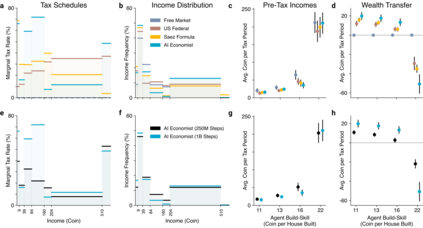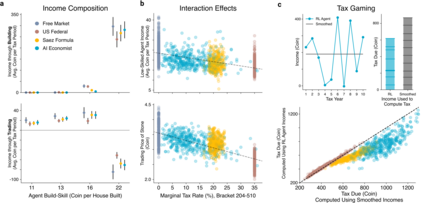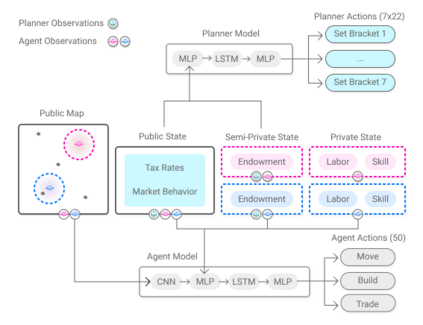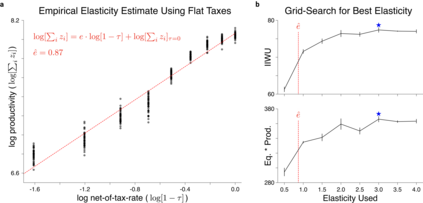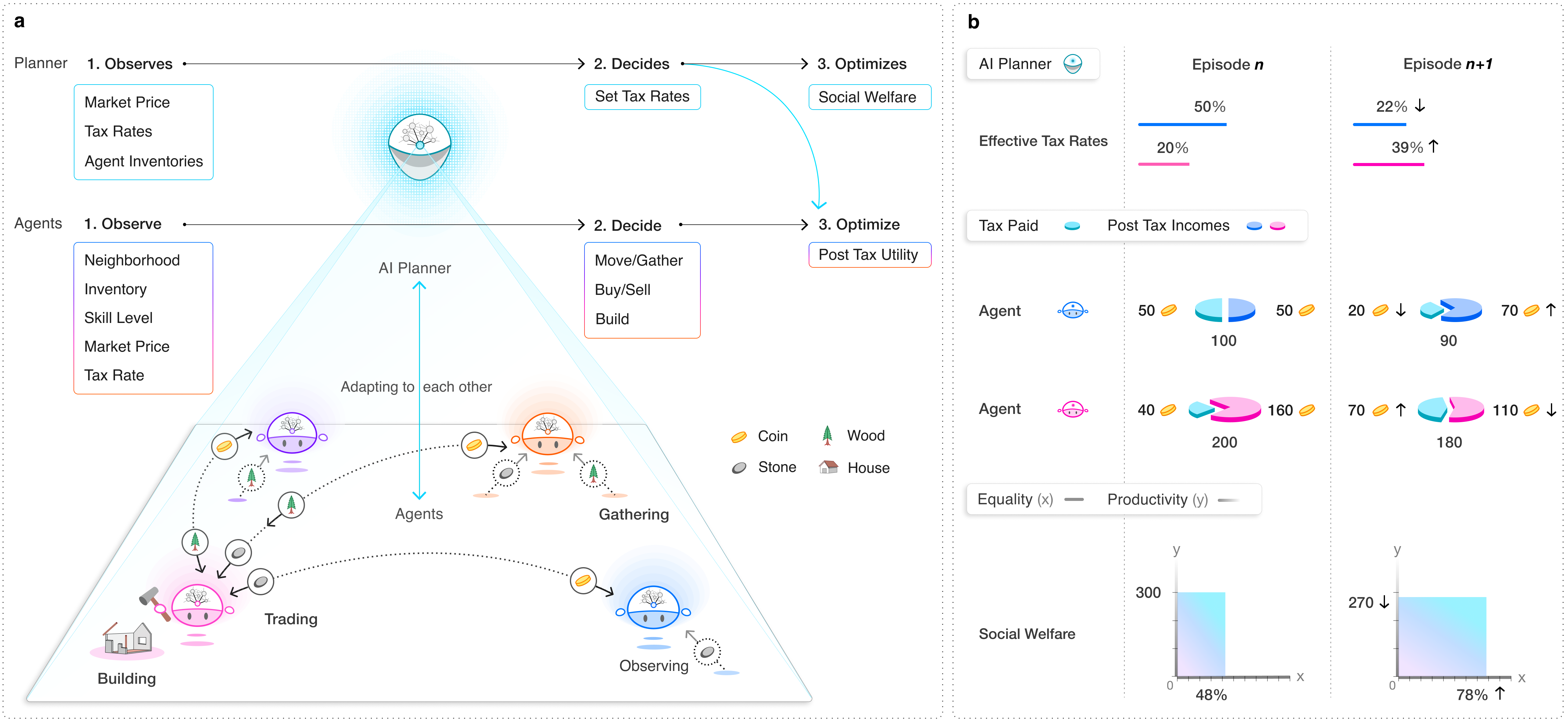AI and reinforcement learning (RL) have improved many areas, but are not yet widely adopted in economic policy design, mechanism design, or economics at large. At the same time, current economic methodology is limited by a lack of counterfactual data, simplistic behavioral models, and limited opportunities to experiment with policies and evaluate behavioral responses. Here we show that machine-learning-based economic simulation is a powerful policy and mechanism design framework to overcome these limitations. The AI Economist is a two-level, deep RL framework that trains both agents and a social planner who co-adapt, providing a tractable solution to the highly unstable and novel two-level RL challenge. From a simple specification of an economy, we learn rational agent behaviors that adapt to learned planner policies and vice versa. We demonstrate the efficacy of the AI Economist on the problem of optimal taxation. In simple one-step economies, the AI Economist recovers the optimal tax policy of economic theory. In complex, dynamic economies, the AI Economist substantially improves both utilitarian social welfare and the trade-off between equality and productivity over baselines. It does so despite emergent tax-gaming strategies, while accounting for agent interactions and behavioral change more accurately than economic theory. These results demonstrate for the first time that two-level, deep RL can be used for understanding and as a complement to theory for economic design, unlocking a new computational learning-based approach to understanding economic policy.
翻译:AI和强化学习(RL)改善了许多领域,但还没有在经济政策设计、机制设计或整个经济学中得到广泛采用。与此同时,目前的经济方法因缺乏反事实数据、简单的行为模式以及实验政策和评估行为反应的机会有限而受到限制。在这里,我们证明基于机械学习的经济模拟是克服这些限制的强大政策和机制设计框架。AI Economist是一个两级的深层次RL框架,它既培训共同适应的代理人,又培训一个社会规划员,为高度不稳定和新颖的二级RL挑战提供可移植的解决方案。我们从简单的经济规范中学习理性的代理人行为,适应规划政策,反之亦然。我们展示了AI经济学经济学家在最佳税收问题上的功效。在简单一步的经济体中,AI Economic 经济学经济学经济学家恢复了经济理论的最佳税收政策。在复杂、充满活力的经济体中,AI Economic 大大改进了无休止的社会福利以及平等和生产率之间的交易。尽管对经济理论的理解非常迅速,但我们还是这样做,而会计行为是用来精确地解释经济理论,而用来解释经济学的相互作用和计算结果。

